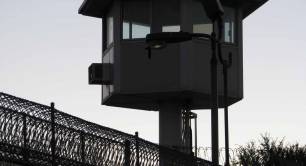The UK's National Health Service wants in on social enterprise
One of the biggest hospital trusts in the country has declared an interest in becoming a social enterprise.
John Adler, chief executive of University Hospitals of Leicester, says he is “very interested” in pursuing a mutual model, believing “it will help sustain the improvements to staff engagement that we have already achieved. With the right leadership, social enterprises have been shown to work well in the NHS community sector”.
Adler was reacting to a report put together by Professor Chris Ham, which looks at staff engagement and empowerment in the NHS. The report was commissioned by the Minister for Care and Support, Norman Lamb MP. It followed concern over the performance of staff at hospitals like Stafford. Research found that there was a strong correlation between the low levels of staff engagement and the quality of patient care there.
Many social enterprises are run as mutual models. Put simply, this means that businesses are owned by their members. John Lewis is probably the most famous example, where staff receive a yearly share of profits depending on the company performance. In the social enterprise world, where profits are ploughed back into the business, it generally means that employees are influential in the running of their company.
Typically this means social enterprises can act in a more dynamic way; ideas that will improve the running of the business can be expedited more swiftly, with less of the bureaucracy that might hold back efficient ideas.
One person who has found this to be true is Scott Darraugh of Social Adventures. Formerly part of the NHS, the company “spun out” in 2009 when austerity cuts were threatening the effectiveness of their operation. Scott was one of the people that the NHS is worried about, saying that he was also ready to exit the culture as he “didn't feel very inspired within the NHS”.
Social Adventures aims to inspire people to lead happier and healthier lives. It does this by offering classes in everything from arts and crafts to zumba; anything that contributes to the wellbeing of a person. The organisation has a staff of 30 people and they are represented at board level.
Darraugh cites a bureaucracy free example of trusting his staff to do the right thing with expenditure. Whilst part of the NHS, a manager had to sign off any expenses over £30, which could be for a few boxes of A4. Staff at Social Adventures are entrusted up to £250 and haven’t gone crazy buying themselves laptops. Instead net spend has gone down by 6% because, “people spend the money as if it is their own and they spend it in the best interests of the organisation”.
As part of his research for his report, Chris Ham visited Spiral Health. The company provides the care required between hospital and home and was also formerly part of the NHS. Managing Director Tracey Bush is also positive about making her 92 staff feel like they’re an essential part of the organisation, rather than just employees.
In terms of engagement, staff are represented at board level and in both the operations and business development groups. Tracey says that staff feel like “they can get things done and they can make things happen without too much red tape or bureaucracy. Staff feel like it’s their organisation.”
With a turnover of £760 million, if UH Leicester were to become a social enterprise model, they’d swiftly become one of the big beasts of the social enterprise world. But with size comes problems. It’s easy to see how social enterprises that are modest in size can make staff feel valued and engaged, but with 10,000 people working at Leicester, Adler would certainly face challenges.
Tracey Bush considers culture change to be a bigger hurdle. She has employed 40 staff coming to her from the NHS. “People have to change from using a very systems driven approach to being able to make decisions and progressing actions very quickly. Also the vision needs to be embedded and everyone has to be on board with that."
Tangible changes following the report are yet to be seen, but the fact that a senior NHS executive is looking admiringly at the social enterprise world further demonstrates that the influence of the sector continues apace.



